The Treaty of Küçük Kaynarca, formerly often written Kuchuk-Kainarji, was a peace treaty signed on 21 July 1774, in Küçük Kaynarca between the Russian Empire and the Ottoman Empire, ending the Russo-Turkish War of 1768–74 with many concessions to Russia. The treaty was a milestone for the end of the Old Regime of the Ottoman Empire. The concessions to Russia are not merely territorial; not only are the territories of Romania and Crimea ceded, Russia also gains the right to construct a Greek Orthodox Church in Istanbul, claiming itself to be the protector of the Greek Orthodox Ottoman community, as a pretext for frequent and numerous interventions in the decades to follow.
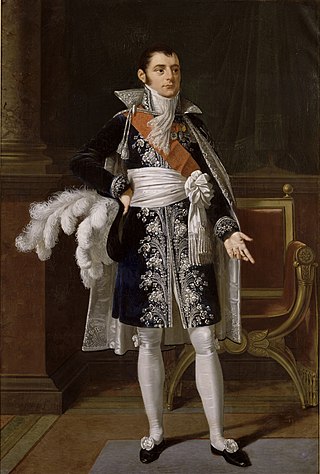
Anne Jean Marie René Savary, 1st Duke of Rovigo was a French military officer and diplomat who served in the French Revolutionary Wars, the Napoleonic Wars and the French invasion of Algeria. He was Minister of Police between 1810 and 1814.
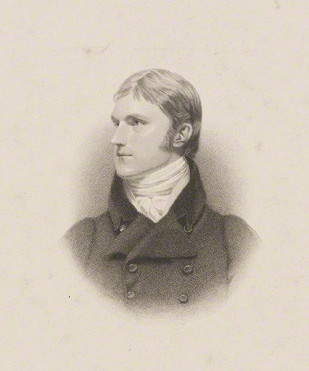
Stratford Canning, 1st Viscount Stratford de Redcliffe, was a British diplomat who became best known as the longtime British Ambassador to the Ottoman Empire. A cousin of George Canning, he served as Envoy Extraordinary and Minister-Plenipotentiary to the United States of America between 1820 and 1824 and held his first appointment as Ambassador to the Ottoman Empire between 1825 and 1828.

Koca Mustafa Reşid Pasha was a Ottoman-Turkish statesman and diplomat, known best as the chief architect behind the Imperial Turkish government reforms known as Tanzimat.
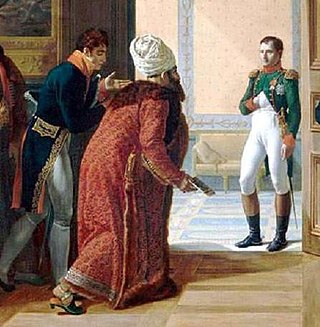
A dragoman was an interpreter, translator, and official guide between Turkish-, Arabic-, and Persian-speaking countries and polities of the Middle East and European embassies, consulates, vice-consulates and trading posts. A dragoman had to have a knowledge of Arabic, Persian, Turkish, and European languages.
Savary is a French surname. Notable people with the surname include:

Alexander Hangerli or Handjeri, was a Dragoman of the Porte of the Ottoman Empire, and Prince of Moldavia between March 7 and July 24, 1807. He spent the latter part of his life as a refugee in the Russian Empire, where he became noted as a linguist. He was the brother of Constantine Hangerli, who reigned as Prince of Wallachia before being executed in 1799.
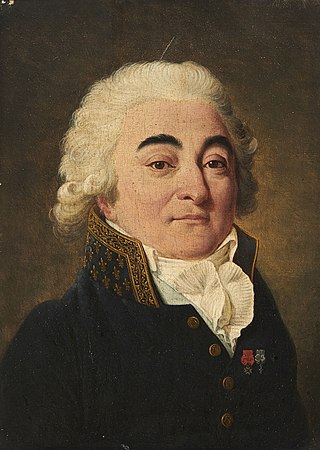
Marie-Gabriel-Florent-Auguste de Choiseul, called Auguste de Choiseul-Gouffier, was a French diplomat and aristocrat from the Gouffier branch of the Choiseul family. A member of the Académie française, he served as French ambassador to the Ottoman Empire from 1784 until the fall of the French monarchy and a scholar of ancient Greece.
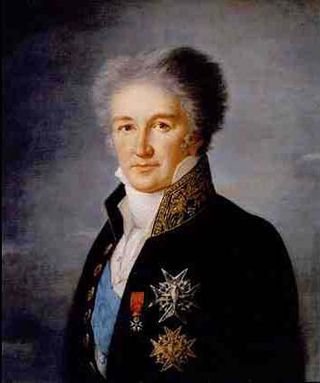
Charles François de Riffardeau, marquis, then duc de Rivière was French ambassador to the Sublime Porte of the Ottoman Empire, 1815–1821, for which service he was made duc in 1825. He played a role in getting the Venus de Milo for the Musée du Louvre.

Gabriel de Luetz, Baron et Seigneur d'Aramon et de Vallabregues, often also abbreviated to Gabriel d'Aramon, was the French Ambassador to the Ottoman Empire from 1546 to 1553, in the service first of Francis I, who dispatched him to the Ottoman Empire, and then of the French king Henry II. Gabriel de Luetz was accompanied by a vast suite of scientists, Jean de Monluc, philosopher Guillaume Postel, botanist Pierre Belon, naturalist Pierre Gilles d'Albi, the future cosmographer André Thévet, traveler Nicolas de Nicolay who would publish their findings upon their return to France and contribute greatly to the development of early science in France.

An Ottoman embassy to France was sent in 1533 by Hayreddin Barbarossa, the Ottoman Governor of Algiers, vassal of the Ottoman Emperor Suleiman the Magnificent.

Charles-Marie-François Olier, marquis de Nointel (1635—1685), a councillor to the Parlement de Paris, was the French ambassador to the Ottoman court of Mehmed IV, from 1670 to 1679, charged from the first with renegotiating the Capitulations under which French merchants and others did business within the Ottoman Empire.

François Savary de Brèves was a French ambassador of the 16th and 17th centuries as well as an Orientalist.
Jacques de Germigny was French Ambassador to the Ottoman Empire from 1579 to 1585. He succeeded to Gilles de Noailles as ambassador. He was sent to the Ottoman Empire by Henry III of France. He was succeeded by Jacques Savary de Lancosme.

Jacques Savary des Brûlons (1657–1716) was the French Inspector General of the Manufactures for the King at the Paris Customs in the 18th century, and a lexicographer who wrote the Dictionnaire universel de commerce.
The Règlement Organique was a series of international conventions, between 1860 and 1864, between the Ottoman Empire and the European Powers, which led to the creation of the Mount Lebanon Mutasarrifate.
Events from the year 1627 in France
The Protocol of St. Petersburg was an 1826 Anglo-Russian agreement for the settlement of the Greek War of Independence.
The Conference of Poros was a meeting held in 1828 by British, French and Russian diplomats to determine the borders of independent Greece.